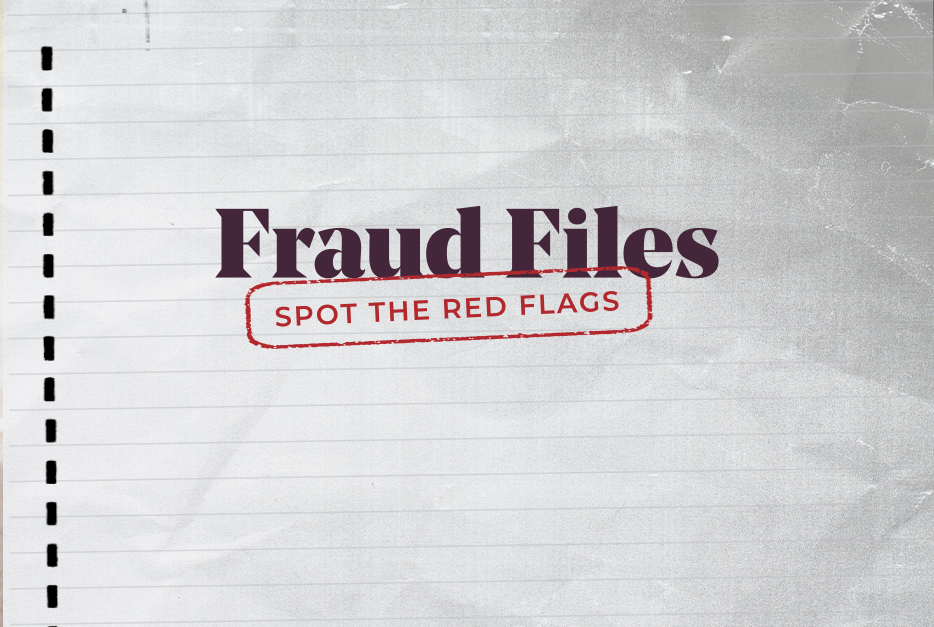Fraud Files: Shopping for trouble
It’s one thing to hear about common scams — it’s another to recognize it when it happens to you. To help you spot the warning signs of fraud, we share real-life stories of the types of scams we encounter at SCU every day. To protect the identities of those involved, names and details of this story have been changed. As you read the story, try to identify what type of fraud occurred and catch the red flags of the scam.
What happened
Like many other recent high school graduates, Sofia was on the job hunt. And, like many other recent high school graduates, getting her first job was easier said than done. After what seemed like endless job applications, resumes, and interviews, her summer job plans seemed miles away.
Until Snapchat came to her rescue.
Sofia was flipping through her stories when an ad popped onto her feed. On it, a young woman danced in a store aisle, while the caption read, “How it feels to get paid to shop.”
Sofia was curious, and swiped up on the ad. It turned out, the position was for a mystery shopper, and the hiring process was surprisingly easy. No resumes, no job applications demanding work experience Sofia didn’t yet have, and best of all, no interviews. “Interviews?” the representative asked Sofia. “Oh, we don’t need to go through that with you. You’d be perfect for this job.”
The role was simple. The representative would send Sofia a cheque, and she would visit the assigned store, spend the majority of the cheque amount in gift cards, then keep the rest as pay. After the shop, she would send the representative the gift card number and security code, and file a report of her experience.
It might have seemed odd that Sofia was buying such large gift card amounts, but she figured the stores had reimbursement deals with the mystery shopping company. The store clerks would sometimes ask questions, but as a mystery shopper, Sofia had strict instructions not to tell them anything about what she was doing. And it might have been a red flag that the cheques kept coming from different business names, but hey, this was Sofia’s first job — maybe this was just a normal way of doing things.
Of course, the large paycheque also made it easy to dismiss her suspicions. While her friends were making minimum wage waiting tables and washing cars, Sofia was earning hundreds of dollars just by visiting a store and writing a quick report.
The scam
What Sofia would soon realize was that her job wasn’t to help stores test their customer service. It was to give scammers thousands of dollars in gift cards, paid from her personal bank account. She only discovered this after receiving a text alert notifying her that her chequing account was overdrawn by thousands of dollars. For some reason, the cheques had bounced.
After explaining the situation to an SCU Member Contact Centre representative, Sofia was transferred to SCU’s compliance department. The compliance officer suspected that Sofia had been a victim of a job scam, and identified the following red flags in her story:
-
No formal interview process: In the moment, it seemed like the perfect opportunity, but the officer told Sofia to be suspicious of a company that doesn’t care about its employees’ background or qualifications.
-
Suspicious cheque details: The officer pointed out that it was unusual for the cheques to be coming from multiple businesses, and for different amounts.
-
An unusually high paycheque: Sofia was receiving far more money per shop than expected. With any job, the officer recommended Sofia research wages in similar positions to see if she would be receiving a comparable amount.
- An unknown company: Other than a Snapchat story, Sofia had no prior knowledge of the company. Before accepting any job offer, the officer recommended she research the company, looking for details like history, products and services, mentions from reputable news sources, etc.
The compliance officer told Sofia that mystery shopping was only one job type scammers use. Officers have also seen scammers send fake cheques to “pay” victims to wrap a company logo on their car, clean houses, or serve as a personal assistant. In other cases, they’ll use the victim to launder money by sending them actual money through an Interac e-Transfer† or wire transfer, then receiving money back. You can learn more about job scams by visiting the Canadian Anti-Fraud Centre (CAFC)’s website.
What happens at SCU
By the time Sofia had noticed the cheques were fake, the scammers had already moved the money to other accounts to make it difficult for the authorities to recover. And because Sofia had willingly deposited the cheque, the loss was not covered by insurance. The compliance officer recommended she take the following steps:
-
Report the incident to the CAFC so they can help raise awareness of common scams.
-
File an incident report with the local authorities.
-
Report the organization to Snapchat administrators so the scammers wouldn’t target other victims on the platform.
Key takeaway: Don’t let your situation cloud your judgement. Taking the “easy way out” rarely pays off in the end.
Does this story sound familiar?
If this has happened to you, or someone you know, here’s how you can report it: scu.mb.ca/fraudprevention/reportfraud



